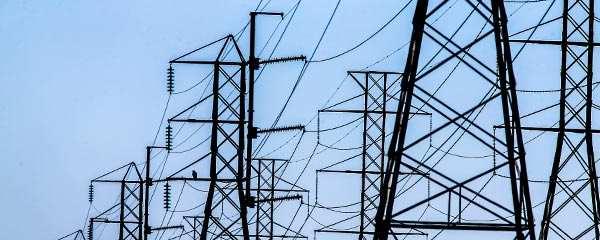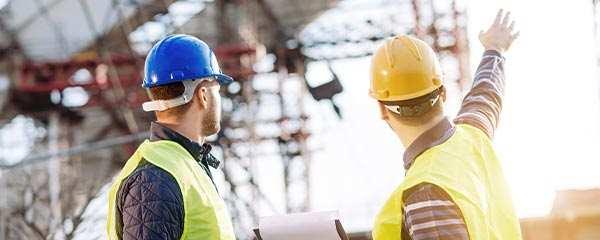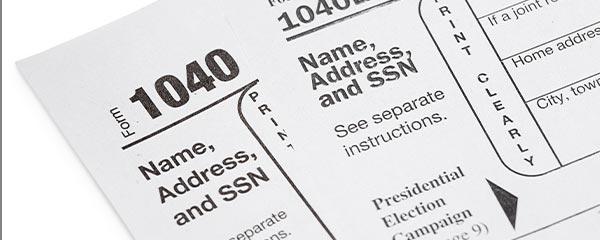Infrastructure is now on the front burner in Congress, with the debate not so much over whether to pass an infrastructure bill, but rather what form it should take.
We have the so-called "bipartisan" bill, developed by Republican and Democratic senators, and the progressive Democrats' bill, championed by Senate Budget Committee Chair Bernie Sanders. The bipartisan bill focuses mainly on "hard" infrastructure such as roads, bridges and tunnels. The progressive Democrats' version expands the focus into "soft" infrastructure such as expanded Medicare, universal child care, climate change policies, low-income housing and immigration reform. These infrastructure bills would cost trillions of dollars -- the exact amount depending on who is doing the calculating and on what eventually gets passed.
President Joe Biden said last week that he wanted both bills to be passed but backtracked over the weekend and is now energetically supporting the bipartisan bill. In Wisconsin earlier this week, he opined, "After months of careful negotiation -- of listening, compromising together and in good faith moving together, with ups and downs and some blips -- a bipartisan group of senators got together and they've forged an agreement to move forward on the key priorities of my American Jobs Plan. This is a generational investment, a generational investment to modernize our infrastructure, creating millions of good-paying jobs ... and positions America to compete with the rest of the world in the 21st century, because China is way outworking us in terms of infrastructure."
Ever the good politician, Biden positions the virtues of the bill by tying it to broad objectives with which it is hard to argue -- creating millions of good-paying jobs and competing with China.
Not to be outdone, Sanders also ties his more expansive progressive bill to the idea that it will create jobs, and goes even further, claiming that it corresponds perfectly to American public opinion: "It's what the American people want. Virtually every proposal I've included in that budget is exactly what the American people want. They want us to create millions of good-paying jobs and to do the other things that are long overdue."
Having studied American public opinion for decades, I am always cautious about statements claiming any policy or group of policies is a precise fit with public attitudes. Americans certainly want more jobs, I think it is safe to say, but do they agree with everything else? And for that matter, where does the public stand on the basic bipartisan bill?
I have previously noted the strong general interest Americans have in tending to the nation's infrastructure, most recently summarizing the data with the self-explanatory title, "Infrastructure Action Should Be a No-Brainer." My review included ║┌┴¤═° data from a few years ago showing that Americans agreed with proposals to "spend more federal money to improve infrastructure, including roads, buildings and waterways" and "enact a $1 trillion program to improve U.S. infrastructure such as roads, bridges and tunnels."
Recent survey research reaffirms these earlier findings, with continuing majority support for infrastructure legislation across several different ways of asking about the issue.
A recent Yahoo ║┌┴¤═°/YouGov poll, for example, told respondents, "A group of 10 Republican and Democratic senators recently put forward a compromise infrastructure plan that would solely rebuild roads, bridges and other traditional infrastructure and cost $1.2 trillion" -- and found significantly more in favor of the plan than against it, although with a significant "not sure" percentage (probably high because the question referred to a specific plan about which respondents did not know much specifically).
A Monmouth University poll found 68% support for infrastructure funding in response to this question: "President Biden recently proposed a $2 trillion infrastructure plan to be spent on roads, bridges and trains, internet access, power grid improvements, and clean energy projects. In general, do you support or oppose this plan?" A Washington Post/ABC ║┌┴¤═° poll in April found 52% support and 35% opposition for a "$2 trillion infrastructure development plan that the Biden administration has proposed." A poll sponsored by the Yale Program on Climate Change Communication found 67% support among registered voters for a "major investment in the nation's infrastructure."
These questions either spell out "hard" infrastructure items that would be included in the legislation or leave the term "infrastructure" undefined. Sanders, as noted, expands the definition of infrastructure to include "soft" infrastructure policies. My read of the data is that Americans don't seem to care. They like the idea of spending on both hard and soft infrastructure and are happy to include both in their understanding of what infrastructure entails.
The most instructive research on this point comes from an interesting Marist/PBS ║┌┴¤═°Hour/NPR poll conducted in April. The survey asked Americans whether they consider each of a list of specific actions to be "part of the country's infrastructure." Remarkably, every one of the six items listed -- hard or soft -- received an affirmative response from a majority of the public. These items included roads, bridges and ports (96% viewed them as being part of the country's infrastructure); pipes that supply public drinking water (89%); the electric grid (85%); broadband internet service (62%); long-term healthcare (58%); and electric vehicle charging stations (51%).
An NBC ║┌┴¤═° poll in April combined both hard and soft infrastructure in a "kitchen sink" question: "Now I am going to describe the infrastructure plan that President Biden supports. This plan would repair and upgrade transportation, water and energy systems. It would also expand broadband access, increase pay for caregivers of the elderly and disabled, as well as provide funding for job training and other programs. Overall, do you think this plan is a good or bad idea?" Fifty-nine percent of Americans thought the plan was a good idea.
The Monmouth poll mentioned above asked about a hard plan ("roads, bridges and trains, internet access, power grid improvements, and clean energy projects") and about a soft plan ("expand access to healthcare and child care, and provide paid leave and college tuition support") and found 68% and 64% support for each, respectively. The Monmouth pollsters then asked which of these two plans was more important for the country. The majority of respondents (54%) said "both" were equally important.
All of these results suggest that Americans have a fairly elastic definition of what is and is not infrastructure, and support both hard and soft operationalizations of the term.
Further support for this conclusion is provided when we look at polling that asks directly about soft infrastructure proposals on a one-by-one basis. A CNBC poll conducted earlier this year for, example, found 75% support for government funding for child care, 57% support for tuition-free state and public college, and 54% support for "Medicare for All." Other polling finds similar majority support for paid family leave and universal child care.
In terms of climate change, my colleague Lydia Saad recently noted that "nearly nine in 10 Americans believe the effects of global warming will be felt by current or future generations" although views on the issue are very politically polarized. And I pointed out in a review that "the significant majority of Americans appear amenable to the idea of de-emphasizing fossil fuels, whether through laws that beef up fuel efficiency standards or by discouraging the production of heavy polluters like coal."
On immigration, our data show majority support for a comprehensive immigration policy that would include a pathway to citizenship.
In short, Americans -- at least in the abstract -- favor fixing roads, bridges, tunnels and airports and also favor expanding social and health programs, addressing climate change, addressing immigration, and so forth. It thus seems fair to say there is general public support behind most of what various politicians have put under the infrastructure rubric.
Bottom Line
Americans react positively to the idea of new legislation directed at "infrastructure" improvements, making it not surprising that politicians would move to use it as an umbrella under which to promote funding for their various areas of interest -- in Sanders' case, progressive policies affecting health, housing and inequality. Americans seem OK with this. They apparently are willing to go along with the idea that these softer policy areas can be considered as elements of infrastructure, broadly defined, and further express majority approval for essentially all of the above. Sanders is, it appears, generally correct to note that Americans support most of what he and others would like to see included in infrastructure legislation.
With all of that said, I should note that despite this public support for infrastructure legislation, it does not appear to be a high priority for Americans. (It's possible that the recent news coverage of the collapsed condominium tower in Florida could increase the public's sense of the importance of focusing on infrastructure.) Pew Research Center in April gave Americans a list of 15 different problems facing the nation and found that "condition of roads, bridges and other infrastructure" ended up third from the bottom of the list in terms of being perceived as "a very big problem." Additionally, infrastructure basically does not show up at all in our ║┌┴¤═° updates on Americans' top-of-mind perceptions of the most important problem facing the nation.
So, Biden and congressional leaders are in an interesting situation -- strong public support for passing infrastructure legislation, regardless of how it is defined, while the public does not accord it a high priority. Perhaps because dysfunctional government is perceived as the most important problem facing the nation at this point, Americans may be more positively impressed by Congress agreeing to actually pass any legislation on infrastructure than they are by the particulars of what such legislation includes.




